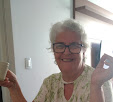MISSISSIPPI RIVER BLUES
BIG BILL BROONZY
SONGWRITER: BIG BILL BROONZY
COUNTRY: U. S. A.
ALBUM: THE YOUNG BIG BILL BRONZY
1928-1935/VINYL
LABEL: YAZOO RECORDS
GENRE: BLUES
YEAR: 1991
Big Bill
Broonzy(born Lee Conley Bradley, June 26, 1903– August 14, 1958) was an
American blues singer,
songwriter and guitarist. His career began in the 1920s, when he played country blues to mostly African-American audiences. Through the 1930s and 1940s he
successfully navigated a transition in style to a more urban blues sound
popular with working-class African-American audiences. In the 1950s a return to
his traditional folk-blues roots made him one of the leading figures of the
emerging American folk
music revival and an international star. His long and varied career marks
him as one of the key figures in the development of blues music in the 20th
century.
Broonzy
copyrighted more than 300 songs during his lifetime, including both adaptations
of traditional folk songs and
original blues songs. As a blues composer, he was unique in writing songs that reflected
his rural-to-urban experiences
Broonzy's
influences included the folk music, spirituals, work songs, ragtime music, hokum, and country blues he
heard growing up and the styles of his contemporaries, including Jimmie
Rodgers, Blind Blake,
Son House, and Blind Lemon
Jefferson. Broonzy combined all these influences into
his own style of the blues, which foreshadowed the postwar Chicago blues, later
refined and popularized by artists such as Muddy Waters and Willie Dixon.
Although
he had been a pioneer of the Chicago blues style and had employed electric
instruments as early as 1942, white audiences in the 1950s wanted to hear him
playing his earlier songs accompanied only by his own acoustic guitar, which
they considered to be more authentic.
He
portrayed the discrimination against black Americans in his song "Black, Brown and White".The
song has been used globally in education about racism, but in the late 1990s
its inclusion in antiracism education at a school in Greater Manchester,
England, led
pupils to taunt the school's only black pupil with the song's chorus,
"If you're white, that's all right, if you're brown, stick around, but if
you're black, oh brother get back, get back, get back". The national media
reported that the problem became so bad that the nine-year-old boy was
withdrawn from the school by his mother. The song had already been adopted by
the National Front, a far-right British political
party which peaked in popularity in the 1970s and opposed nonwhite immigration
to Britain.
A
considerable part of Broonzy's early ARC/CBS recordings has been reissued in
anthologies by CBS-Sony, and other earlier recordings have been collected on
blues reissue labels, as have his European and Chicago recordings of the 1950s.
The Smithsonian's Folkways Records has also released several
albums featuring Broonzy.
(...)In
the September 2007 issue of Q Magazine, Ronnie Wood,
of the Rolling Stones, cited Broonzy's track
"Guitar Shuffle" as his favorite guitar music. Wood remarked,
"It was one of the first tracks I learnt to play, but even to this day I
can't play it exactly right."
Eric Clapton
has cited Broonzy as a major inspiration, commenting that Broonzy "became
like a role model for me, in terms of how to play the acoustic guitar." Clapton
featured Broonzy's song "Hey Hey" on his album Unplugged. The Derek and the Dominos album Layla and Other Assorted Love Songs includes
their recording of "Key to the Highway".
(…)As
part of the PopUp Archive project, in collaboration with the WFMT network, the Chicago History Museum, and the Library of Congress, an hour-long interview of
Broonzy, recorded on September 13, 1955, by Studs Terkel
was made available on-line. The interview includes reflections on his life and
on the blues tradition, a performance of one of his most famous songs,
"Alberta," and performances of "Goin' Down the Road Feelin'
Bad" and other classics.
Mississ-ippi river
Is so long, deep and wide
I can see my good girl
Standin' on that other side
I cried and I called
I could not make my baby hear
Lord, I'm 'on get me a boat, woman
Paddle on away from here
(guitar)
Ain't it hard to love someone
When they are so far from you
Lord, I'm on' get me a boat and
Paddle this old river blue
I went
down to the landing
To see if any boats were there
And the fareman told me
Could not find the boats nowhere
(guitar)
The big
boat ease up the river
Are turnin' 'round an 'round
Lord, I'm 'on get me a good girl
Or jump overboard an drown.







0 comentários:
Postar um comentário